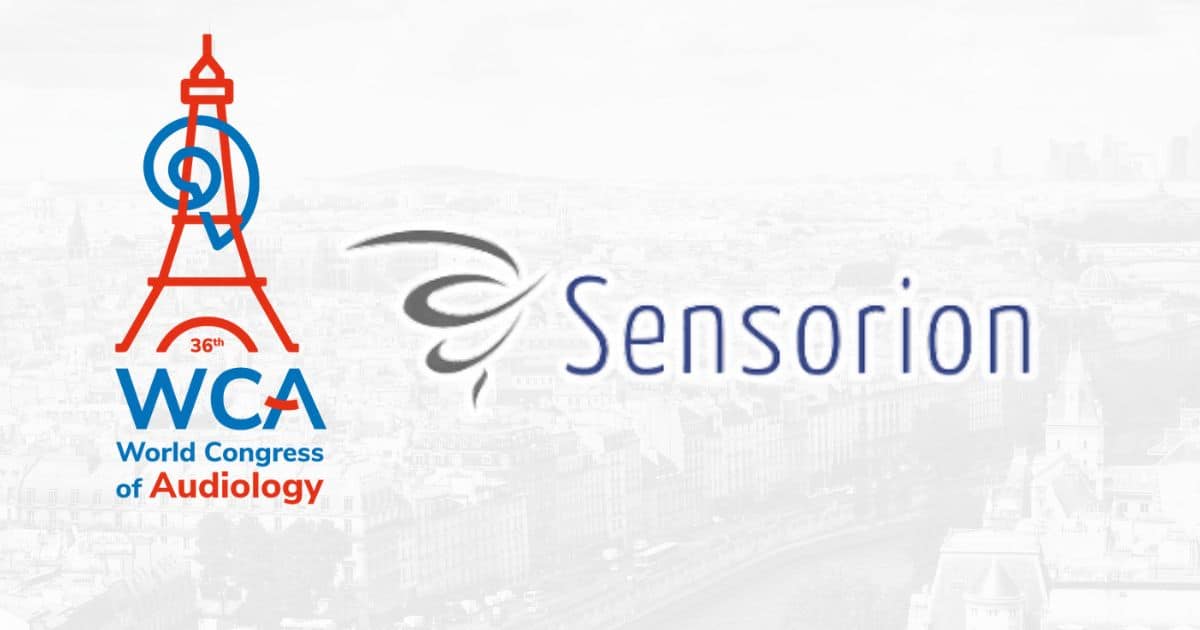Sensorion (FR0012596468 – ALSEN), a pioneering clinical-stage biotechnology company specializing in the development of novel therapies to restore, treat, and prevent hearing loss disorders, announced new positive medical data from its clinical programs, SENS-501 and SENS-401, during a symposium at the 36th World Congress of Audiology (WCA) in Paris, held at CNIT, La Défense, France.
The company presented data from its gene therapy program, SENS-501, and small molecule program, SENS-401. The symposium featured presentations from several prominent experts in the field, including:
- Professor Natalie Loundon, ENT Surgeon at the Pediatric Hospital Necker-Enfants malades in Paris, France
- Professor Catherine Birman, Otorhinolaryngologist and Director of the Sydney Cochlear Implant Centre, Australia
- Professor Yann Nguyen, ENT Surgeon at Pitié Salpétrière Hospital, Paris, France
- Professor Stephen O’Leary, Head of Otorhinolaryngology, University of Melbourne, Australia
- Professor Christophe Vincent, Head of Otology and Otoneurology, ENT Surgeon at Salengro Hospital, Lille, France
Gene Therapy: Audiogene (OTOF-GT)
Professor Catherine Birman presented initial positive safety results from Sensorion’s Phase 1/2 gene therapy clinical trial of SENS-501, which aims to restore hearing in patients with otoferlin deficiency, one of the most common forms of congenital deafness. The surgery was well tolerated by the patient, with no safety signals reported. Early observations also noted changes in the child’s behavior and vocalizations.
Audiogene aims to evaluate the safety, tolerability, and efficacy of intra-cochlear injection of SENS-501 in pediatric patients aged 6 to 31 months with OTOF gene-mediated hearing impairment. By targeting the early years of life, when auditory system plasticity is optimal, the therapy seeks to maximize the chances for children with pre-lingual hearing loss to acquire normal speech and language.
The study involves two cohorts of two doses, followed by an expansion cohort at the selected dose. The auditory brainstem response (ABR) will be the primary efficacy endpoint for the expansion cohort.
Small Molecule: SENS-401 in Cisplatin-Induced Ototoxicity (NOTOXIS)
Professor Yann Nguyen presented preliminary safety and efficacy data from Sensorion’s Phase 2a clinical trial of SENS-401 for preventing hearing loss caused by cisplatin-induced ototoxicity in patients undergoing chemotherapy. Preliminary data showed that a cumulative cisplatin dose is a key factor in the severity of ototoxicity.
A good safety profile for SENS-401 was confirmed over the long term, with the drug administered for an average duration of up to 23 weeks. Preliminary results also suggest a trend toward an otoprotective effect of SENS-401 at doses beyond 300 mg/m² of cisplatin.
The NOTOXIS Proof-of-Concept (POC) Phase 2a trial is a multicenter, randomized, controlled, open-label study designed to assess the efficacy of SENS-401 in preventing cisplatin-induced ototoxicity in adult patients with neoplastic disease, four weeks after completing cisplatin-based chemotherapy. The trial evaluates several endpoints, including the rate and severity of ototoxicity, changes in pure tone audiometry (PTA), and tolerability.
SENS-401 for the Prevention of Residual Hearing Loss Following Cochlear Implantation
During the symposium, Professor Stephen O’Leary and Professor Christophe Vincent presented final data analysis from Sensorion’s Phase 2a clinical trial of SENS-401, which aims to preserve residual hearing after cochlear implantation. The analysis revealed clinically significant effects on residual hearing preservation in patients treated with SENS-401 compared to a control group.
The Phase 2a clinical trial is a multicentric, randomized, controlled, open-label study evaluating the presence of SENS-401 in the cochlea (perilymph) after 7 days of twice-daily oral administration in adult patients prior to cochlear implantation due to moderately severe to profound hearing impairment. Patients began treatment 7 days before implantation and continued to receive SENS-401 for an additional 42 days.
**Details of these presentations will be available on Sensorion’s website after the symposium concludes at 1:30 PM CET (7:30 AM ET). A video recording of the symposium will also be available shortly after.
About Sensorion
Sensorion is a pioneering clinical-stage biotech company, which specializes in the development of novel therapies to restore, treat and prevent hearing loss disorders, a significant global unmet medical need. Sensorion has built a unique R&D technology platform to expand its understanding of the pathophysiology and etiology of inner ear related diseases, enabling it to select the best targets and mechanisms of action for drug candidates.
It has two gene therapy programs aimed at correcting hereditary monogenic forms of deafness, developed in the framework of its broad strategic collaboration focused on the genetics of hearing with the Institut Pasteur. OTOF-GT targets deafness caused by mutations of the gene encoding for otoferlin and GJB2-GT targets hearing loss related to mutations in GJB2 gene to potentially address important hearing loss segments in adults and children. The Company is also working on the identification of biomarkers to improve diagnosis of these underserved illnesses.
Sensorion’s portfolio also comprises clinical-stage small molecule programs for the treatment and prevention of hearing loss disorders.
Sensorion’s clinical-stage portfolio includes one Phase 2 product: SENS-401 (Arazasetron) progressing in a planned Phase 2 proof of concept clinical study of SENS-401 in Cisplatin-Induced Ototoxicity (CIO) and, with partner Cochlear Limited, in a study of SENS-401 in patients scheduled for cochlear implantation. A Phase 2 study of SENS-401 was also completed in Sudden Sensorineural Hearing Loss (SSNHL) in January 2022.
Source: Sensorion






